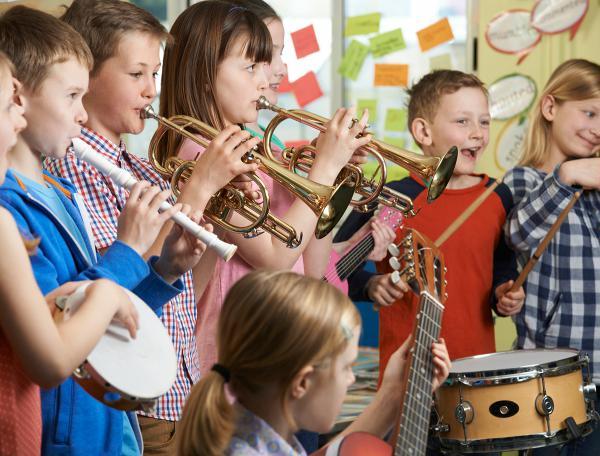Music is a universal language, a powerful tool for creativity, and expression. But for parents, the decision to introduce their child to a musical instrument can be daunting. Here, we’ll answer some of the most common questions to help your child embark on this enriching journey.
Matching Instrument to Child
There’s no single “best” age to begin playing. Many experts recommend starting around age 5-7, when children have better hand-eye coordination and can focus for longer stretches. However, some early childhood music programs cater to younger kids, using songs and movement to introduce basic musical concepts.
As for choosing an instrument, consider your child’s interests and physical development. Xylophones and drums are great for building rhythm skills, while ukuleles and recorders are relatively easy to learn and hold. Don’t be afraid to let your child experiment!
Practice Makes Progress: But How Much?
Focus on quality over quantity, especially for younger children. Short, engaging practice sessions (around 10-15 minutes) are more effective than long, frustrating ones. As your child progresses, gradually increase the practice time. Remember, consistency is key – even a few minutes a day can make a difference. Remember, the goal is to nurture a love for music, not create frustration.
Music and the Mind: A Perfect Harmony
Studies suggest that playing a musical instrument can have a positive impact on a child’s academic performance. It can improve memory, focus, and cognitive skills like problem-solving. Learning music also helps with discipline and time management, valuable skills that translate well into other areas of life.!
Keeping the Spark Alive: Encouraging Practice
Make practice time a fun and positive experience. Play music together, sing along, and celebrate their achievements. Practice can feel like a chore at times. Celebrate small victories, like mastering a new chord or song. Make practice sessions fun – play music games, have jam sessions together, or let them choose songs they enjoy. Positive reinforcement goes a long way in keeping them motivated.
Music Without Notation? Absolutely!
While reading music is a valuable skill, it’s not essential for beginners. Many instruments can be learned by ear, using songs and instructional videos.
Many instruments, particularly percussion instruments, can be learned by ear, with guidance from a teacher or instructional materials. Learning to read music can be introduced later as your child progresses.
Considering Quitting? Take a Pause
It’s natural for kids to encounter challenges and feel like quitting. Talk to them, identify what’s causing frustration, and offer support. Maybe they need a new challenge, or perhaps a fun practice activity can reignite their interest.
Talk to your child and understand their reasons. Maybe a change in practice routine, a new song they’d love to learn, or a short break could reignite their passion. If quitting seems like the final decision, explore other musical avenues like singing in a choir or exploring different instruments.
Cultivating a Love of Learning Through Instruments
Playing an instrument fosters teamwork and social skills. Joining a band or orchestra teaches children to collaborate, listen to each other, and celebrate shared achievements. It’s a fantastic way to make new friends who share a passion for music!
So, if you’re looking for a way to nurture your child’s creativity, intellect, and social skills, consider the world of musical instruments. With dedication and the right guidance, your child can embark on a beautiful musical journey that enriches their life in countless ways.


